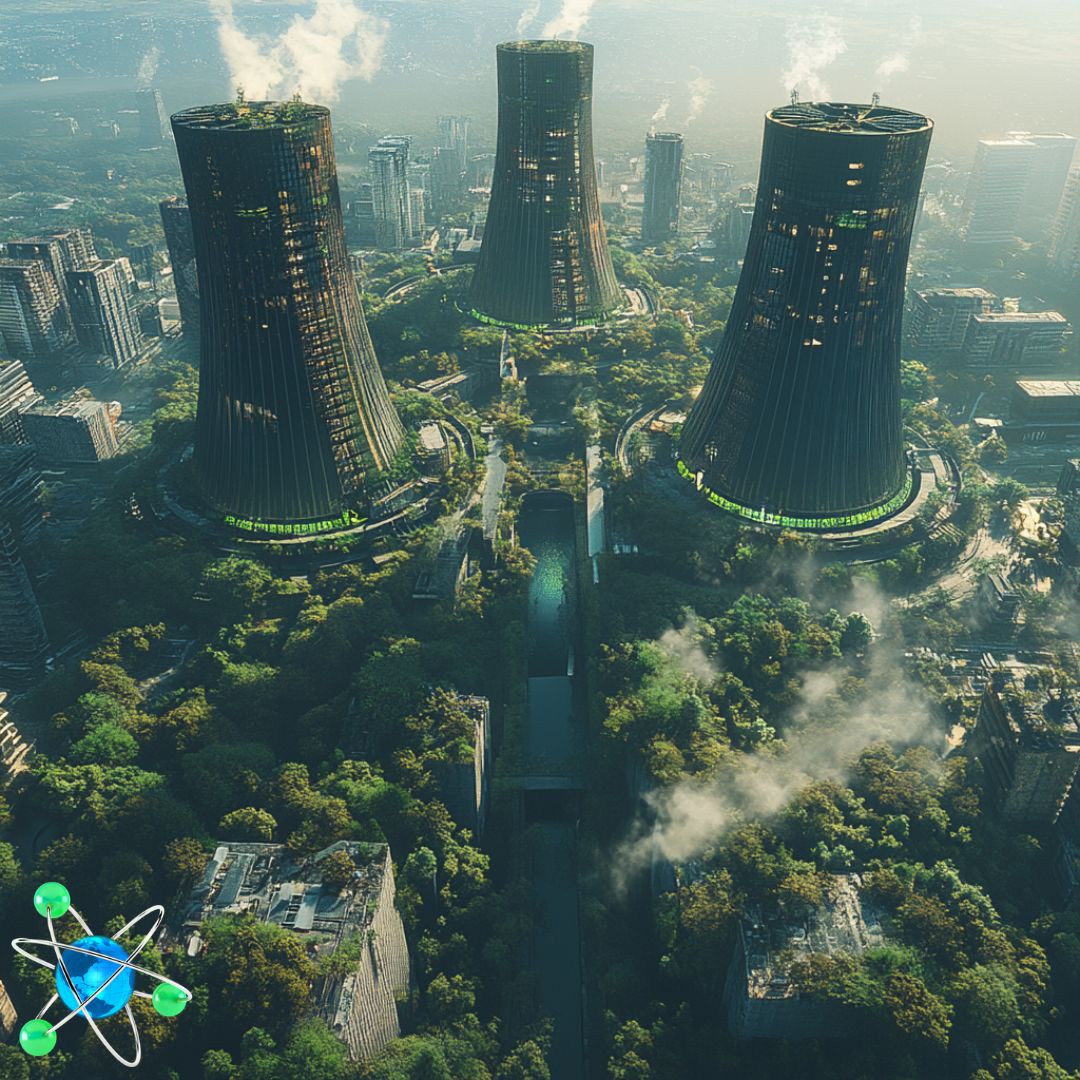
-
- Surging Energy Demands: The rapid growth of AI and cloud computing is driving global electricity consumption to unprecedented levels, with data centers requiring continuous, city-scale power.
- Nuclear Energy’s Comeback: Tech giants like Google, Amazon, Microsoft, and Meta are investing in nuclear power to meet their energy needs, highlighting its reliability, carbon-free operation, and economic benefits.
- Transforming Global Energy: The adoption of nuclear power by the tech industry signals a shift in energy strategies, bridging the gap between sustainability goals and the rising demands of technological advancements.
Data centers powering artificial intelligence and cloud computing are driving global energy demand to unprecedented levels. According to the U.S. Department of Energy, electricity use worldwide could rise by as much as 75% by 2050, with much of the surge attributed to the tech industry’s ambitious AI developments. As these data centers grow larger and more complex, their energy requirements are reaching staggering proportions, to the point where a single facility might consume more electricity than an entire city.
This accelerating demand is forcing the tech industry to confront a critical dilemma: how to reconcile its insatiable energy needs with its stated sustainability goals. Mark Nelson, managing director of Radiant Energy Group, highlighted the unique challenges posed by these energy-hungry operations, noting that their power demands are constant and unrelenting—24 hours a day, 365 days a year. Renewable energy sources like wind and solar, while pivotal to reducing carbon emissions, are inherently intermittent and unable to meet such continuous demand on their own. This has prompted a growing number of companies to explore alternatives that can provide stable, round-the-clock power.
Nuclear energy, once sidelined due to fears over safety and high-profile accidents, is experiencing a renaissance. Tech giants such as Google, Amazon, Microsoft, and Meta have begun investing in nuclear power projects, driven by the need to sustainably support their data centers and AI systems. These companies are leading a broader industry trend that could mark the beginning of a transformative shift in the global energy landscape.
Michael Terrell, Google’s senior director of energy and climate, emphasized the benefits of nuclear energy, calling it a “carbon-free source of electricity” that can operate continuously and deliver significant economic advantages. This reliability makes nuclear uniquely suited to meet the consistent and massive energy needs of AI infrastructure, while its lack of greenhouse gas emissions aligns with corporate sustainability commitments. Moreover, the economic impact of nuclear investments—including job creation, regional development, and energy independence—offers an added incentive for adoption.
This renewed interest in nuclear energy reflects a broader re-evaluation of its role in combating climate change. For decades, nuclear power was overshadowed by safety concerns and the rise of renewable energy. However, as technological advancements address past challenges and as the energy demands of industries like tech soar, nuclear is being recognized as a vital component of the clean energy transition. The tech sector’s involvement may also play a pivotal role in shifting public perception, countering longstanding fears with tangible examples of nuclear’s potential to drive innovation and sustainability.
The intersection of AI and nuclear power represents more than a solution to the tech industry’s immediate energy challenges. It signifies the emergence of a new paradigm in energy production, one where cutting-edge technology and sustainable practices converge to address the world’s most pressing environmental and economic issues. As tech leaders continue to invest in nuclear, they are not just meeting their own needs but also paving the way for a global energy transformation.
